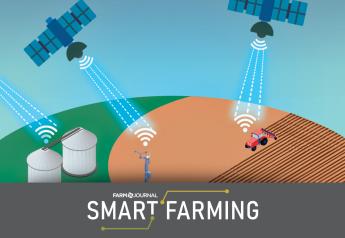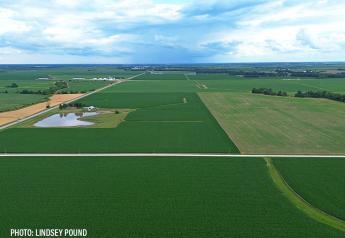Cubbage: Is Your Business A Ford Or A Tesla?

Farmers wear many hats as they may assume the role of biologist, economist, systems engineer, heavy-equipment operator and myriad other titles. It’s all part of “simply being a farmer.” But the hat farmers better get most comfortable wearing is the hat of “technologist.”
When someone asks you, “What do you do?” and your response indicates you’re an ag retailer, crop consultant or farmer, John Ellis says that answer is simply wrong in today’s world. “You are a technologist who has chosen to deliver farm products,” Ellis, who has worked in the mobile and automotive industries, told attendees of Farm Journal’s AgTech Expo.
Technology is infiltrating all businesses at lightning speed. Agriculture is no exception. To appreciate how disruptive technology can be, Ellis says to look at today’s automobile industry. For a period last year, the most valuable car manufacturer in terms of market value was a young whippersnapper of a company named Tesla.
Ellis contends that GM and Ford are old-school manufacturers that have made cars the same way since the beginning of the 20th century. Tesla, on the other hand, is a 21st-century technology company that just happens to build the coolest and smartest vehicles, which are all electric by the way—no internal combustion engines under the hood.
Candidates For Disruption. Right now, most farms look, think and operate more like a Ford Motor Company than a Tesla. That should be a huge concern not only for individual farmers but also for the industry as a whole. We are basically an analog-era industry trying to operate in the digital world of the future. And time is not on our side.
Even though “precision agriculture” has been around for 25-plus years, many farming practices have been enhanced but not seriously changed. Technologies like auto-steer and planter clutches are not primed to do the disrupting this time.
It is going to be about big data, the cloud and the Internet of things. It is going to be about adopting, understanding and exploiting your digital footprint within an information-driven marketplace. If you’re looking for validation about whether this is all real, then consider two words: Bitcoin and Blockchain.
The hottest speculative investment is cryptocurrency—the biggest name of which is Bitcoin. Most people consider it to be as real as Monopoly money, but don’t discount its future impact on financial and agricultural markets.
Then, there is Blockchain, which the Silicon Valley crowd calls a digital ledger that could ultimately track every process and transaction involved in growing and getting food from farm to table. In simple terms, I like to call it the Carfax report that comes with your box of Wheaties at Walmart. Unfortunately, the farm level is arguably the weakest link in applying Blockchain to agriculture.
That’s the weakness Ellis was suggesting. Digital data collection and standardization at the farm level are woefully lacking and extremely fragmented. To link up with Blockchain and consumers, growers must start digitizing data en masse. Every field operation, input and transaction needs to be correctly documented digitally. The future is here now. Are you ready? Maybe the better question is which hat are you wearing? Are you a technologist?







